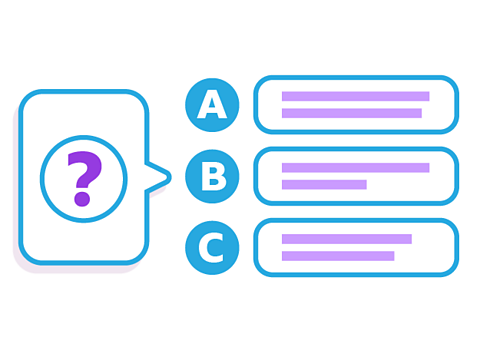Key points about adverbs in Spanish

- adverbGenerally used to describe a verb, or actions to add more detail about how something is being done (and when, where or how often something takes place). describe a verbWord used to describe an action, state of being or an occurrence. and usually end in mente in Spanish. They can be easily formed from the adjective.
- There are some irregular common adverbs which are important to know.
- There are both regularSomething that follows the usual or āregularā pattern. and irregularSomething that does not follow the usual or āregularā pattern.comparative adverbs A form of the adverb used to compare two things, such as āthe train travels faster than the carā. and superlative adverbsA form of the adverb used to compare three or more things, such as āAna runs the fastest in the class.ā Generally, superlatives are used to show something is in the top of its category. .
What are adverbs?
Adverbs are usually used to describe a verb. In other words, they describe actions and add more detail. Adverbs can describe how something is being done (quickly, badly, etc) and when, where or how often something takes place.
Most adverbs in English end in -ly. For example:
quickly
easily
strangely
How to form regular adverbs in Spanish
Most Spanish adverbs end in mente.
For example:
Sorry, something went wrongCheck your connection, refresh the page and try again. - regularly
Sorry, something went wrongCheck your connection, refresh the page and try again. - slowly
An adverb can be formed from almost any adjective in Spanish by adding mente to the feminine singular form of the adjective.
Here are some examples:
| Adjective | Feminine singular form | Add mente |
|---|---|---|
| Sorry, something went wrongCheck your connection, refresh the page and try again. - slow | Sorry, something went wrongCheck your connection, refresh the page and try again. - slow | Sorry, something went wrongCheck your connection, refresh the page and try again. - slowly |
| Sorry, something went wrongCheck your connection, refresh the page and try again. - traditional | Sorry, something went wrongCheck your connection, refresh the page and try again. (no change) - traditional | Sorry, something went wrongCheck your connection, refresh the page and try again. - traditionally |
| Sorry, something went wrongCheck your connection, refresh the page and try again. - correct | Sorry, something went wrongCheck your connection, refresh the page and try again. - correct | Sorry, something went wrongCheck your connection, refresh the page and try again. - correctly |
| Sorry, something went wrongCheck your connection, refresh the page and try again. - serious | Sorry, something went wrongCheck your connection, refresh the page and try again. (no change) - serious | Sorry, something went wrongCheck your connection, refresh the page and try again. - seriously |
How to use adverbs in Spanish
Most of the time the adverb goes after the verb it is describing.
For example:
Juego al tenis regularmente. - I play tennis regularly.
El tren viaja lentamente. - The train travels slowly.
Adverbs are invariable, which means they only have one form and do not change according to gender or number.
For example:
En EspaƱa la cena se come tradicionalmente tarde. - In Spain the evening meal is traditionally eaten late.
El chico estĆ” gravemente enfermo. - The boy is seriously ill.
Es importante escribir correctamente. - Itās important to write correctly.
Adverbs in Spanish - Mini quiz

Fill in the gap to complete the following sentence:
El coche va _________.
The car goes slowly.
El coche va lentamente.
The car goes slowly.
Lentamente is used as you need to take the feminine form of the adjective lenta and add mente.
Two or more adverbs used in sequence
When two or more adverbs are used in sequence, add mente only to the last adverb.
For example:
Habla suave pero claramente. - She speaks softly but clearly.
Suave meaning softly and claramente meaning clearly are both adverbs.
Irregular adverbs in Spanish
Some adverbs are completely irregular, such as bien (well) and mal (badly).
For example:
David habla espaƱol muy mal. - David speaks Spanish very badly.
Marta juega muy bien al fĆŗtbol. - Marta plays football very well.
Others such as °łĆ”±č¾±»å“Ē/²¹ (fast) are an adjective as well as an adverb.
For example:
La chica Ʃ muy rƔpida. - The girl is very fast.
øéĆ”±č¾±»å²¹ here is an adjective.
El tren viaja muy rƔpido. - The train travels very quickly.
øéĆ”±č¾±»å“Ē here is an adverb.
Regular comparative adverbs in Spanish
Regular comparative adverbs are formed in the same way as regular comparative adjectives in Spanish. They are formed by using the word ³¾Ć”²õ meaning more or menos meaning less followed by the adverb and the word que meaning than.
For example:
El coche viaja ³¾Ć”²õ lentamente que el tren. - The car travels more slowly than the train.
Carlos hace su trabajo menos fƔcilmente que Ricardo. - Carlos does his work less easily than Ricardo.
To say that one action is the same as another, use the word tan meaning as followed by the adverb and the word como meaning as.
For example:
Julia corre tan rƔpido como Ana. - Julia runs as fast as Ana.
Regular superlative adverbs
Superlative adverbs (the most often, the most efficiently, the fastest) are formed in the same way in Spanish as comparative adverbs, using ³¾Ć”²õ and menos. In this case ³¾Ć”²õ means the most and menos means the least.
For example:
Marta es la que corre ³¾Ć”²õ rĆ”pido. - Marta is the one who runs (the) fastest.
la chica que sabe ³¾Ć”²õ - the girl who knows (the) most
la chica que sabe menos - the girl who knows (the) least

Remember
Comparative and superlative adverbs are usually identical in Spanish so use the context of the rest of the sentence to decide which one is meant.
Irregular comparative and superlative adverbs
Irregular comparative and superlative adverbs are usually identical in Spanish and you can tell which one is meant by the rest of the sentence.
| Adverb | Comparative | Superlative |
|---|---|---|
| Sorry, something went wrongCheck your connection, refresh the page and try again. - well | Sorry, something went wrongCheck your connection, refresh the page and try again. - better | Sorry, something went wrongCheck your connection, refresh the page and try again. - the best |
| Sorry, something went wrongCheck your connection, refresh the page and try again. - badly | Sorry, something went wrongCheck your connection, refresh the page and try again. - worse | Sorry, something went wrongCheck your connection, refresh the page and try again. - the worst |
| Sorry, something went wrongCheck your connection, refresh the page and try again. - a lot | Sorry, something went wrongCheck your connection, refresh the page and try again. - more | Sorry, something went wrongCheck your connection, refresh the page and try again. - the most |
| Sorry, something went wrongCheck your connection, refresh the page and try again. - a little | Sorry, something went wrongCheck your connection, refresh the page and try again. - less | Sorry, something went wrongCheck your connection, refresh the page and try again. - the least |
For example:
Ana juega al fĆŗtbol mejor que tĆŗ. - Ana plays football better than you do.
Ahora salgo menos. - I go out less these days.
Quiz - Adverbs in Spanish
Practise what you've learned about adverbs in Spanish with this quiz.
Now you have learned about adverbs in Spanish why not explore adjectives in Spanish?
More on Adjectives and adverbs
Find out more by working through a topic
- count1 of 8

- count2 of 8

- count3 of 8
